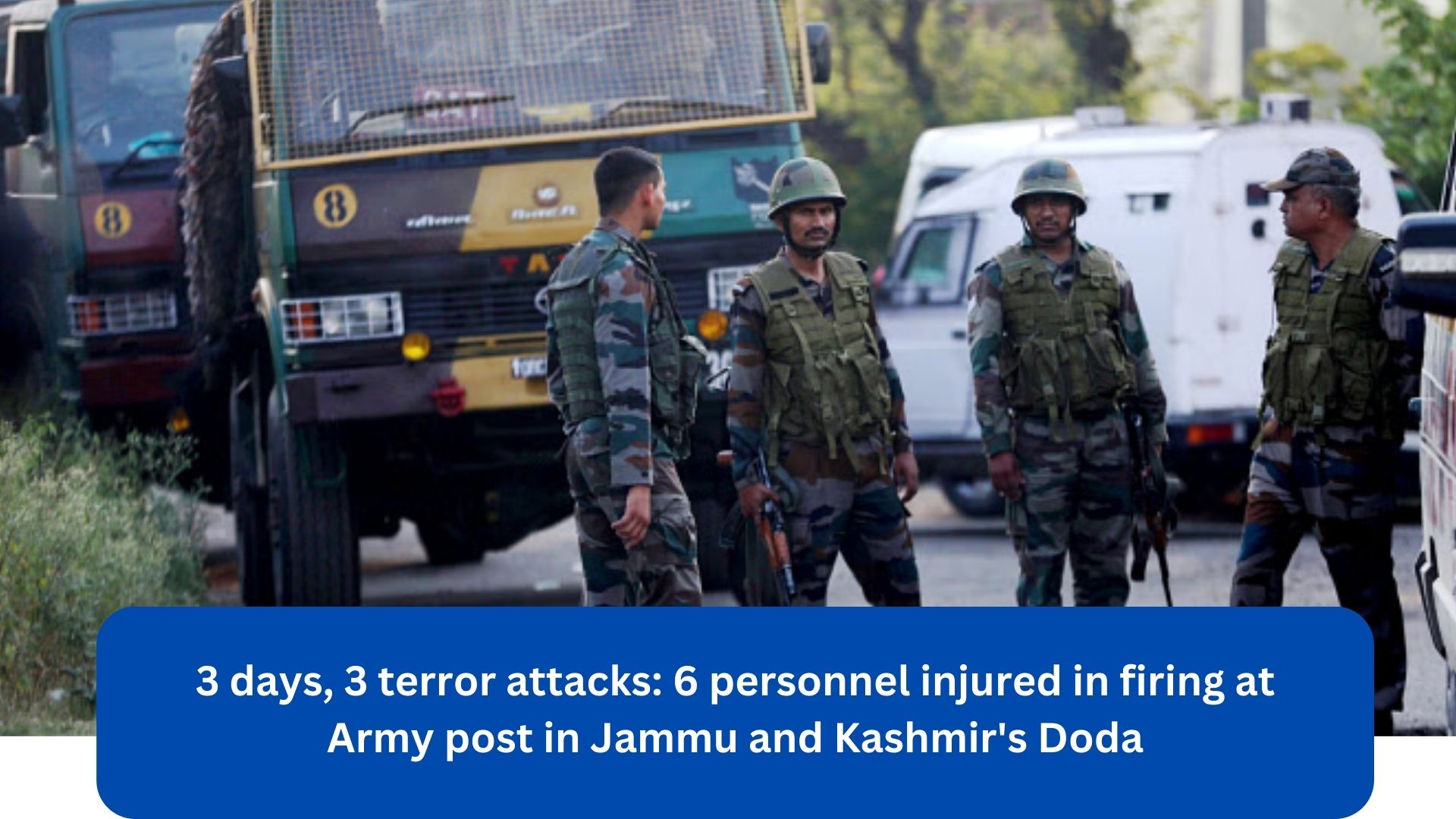The past three days in Jammu and Kashmir have been marred by a surge in terror attacks, shattering the fragile peace in the region. This renewed violence has left many injured, instilled fear in the hearts of civilians, and raised critical questions about security measures. Examining the details of these attacks, their potential causes, and the ongoing response is crucial to understanding the evolving situation in Jammu and Kashmir.
A Chronology of Terror
- June 9th, Reasi District: A horrific attack unfolded when a bus carrying pilgrims on their way to the holy shrine of Shiv Khori was targeted. The bus was fired upon, causing it to veer off the road and crash into a gorge. This resulted in the tragic deaths of nine innocent pilgrims and injuries to a further 42.
- June 10th, Kathua District: Security forces engaged in an encounter with terrorists who had opened fire in a village, injuring a civilian. This incident culminated in the elimination of one terrorist. However, reports suggest another might be at large.
- June 11th, Doda District: The most recent attack targeted Doda’s Army Temporary Operating Base (TOB). Here, terrorists initiated a firefight, injuring six security personnel – five army soldiers and one particular police officer. Thankfully, reports indicate they are receiving medical care.
A Cause for Alarm
These attacks, occurring quickly, are a cause for significant concern. They highlight the continued presence and capability of terror outfits to disrupt peace in Jammu and Kashmir.
- Shifting Tactics: The targeting of both civilians (pilgrims) and security forces suggests a deliberate attempt to destabilize the region. This shift in tactics from focusing primarily on security personnel to inflicting civilian casualties represents a worrying development.
- Fragile Stability: The attacks come as the region is witnessing a gradual improvement in security conditions. This surge in violence threatens to derail the progress made towards normalcy.
- Attribution and Intent: Authorities have attributed the attacks to Pakistan, a long-standing accusation in the Kashmir conflict. While the official investigation is ongoing, the timing and nature of the attacks suggest a potential attempt to disrupt the ongoing peace talks or heighten tensions before the upcoming Amarnath Yatra pilgrimage.
Read Also: Adani Group Receives Love and Praise from The Opposition at The Inauguration of the Vizhinjam Port
The Security Response
Security forces have understandably intensified their operations in the affected areas following the attacks. This includes:
- Increased Patrolling: Security personnel will likely be more visible, conducting heightened patrols and frisking exercises to deter further attacks.
- Search Operations: Efforts to locate any remaining terrorists involved in the Kathua incident are likely to be intensified.
- Heightened Intelligence Gathering: Authorities will be working to gather intelligence to understand the planning and motivation behind these attacks.
Impact on Civilians
The surge in violence has instilled fear and anxiety among the residents of Jammu and Kashmir.
- Disruption of Daily Life: Increased security measures, while necessary, can disrupt daily routines and create a sense of unease.
- Loss of Livelihood: Due to safety concerns, the tourism industry, a significant source of income for many in the region, is likely to be impacted.
- Psychological Trauma: The violence can have a lasting psychological impact, especially on those who witnessed the attacks or lost loved ones.
Read Also: Doda terrorist attack: 6 security personnel injured after checkpost targeted, operation underway
The Path Forward
Jammu and Kashmir has a long history of grappling with terrorism. These recent attacks are a stark reminder of the ongoing challenges in achieving lasting peace. Here are some critical considerations for the path forward:
- Enhancing Security Measures: Existing security measures must be critically evaluated, and gaps identified that terrorists may have exploited. This could involve strengthening border security, improving intelligence gathering, and enhancing inter-agency coordination.
- Addressing the Root Causes: While robust security measures are crucial, addressing the root causes of discontent and alienation in certain sections of society is equally essential. This includes promoting social and economic development, fostering dialogue with all stakeholders, and ensuring that human rights are upheld.
- Public Cooperation: The public’s cooperation is critical in combating terrorism. This can involve reporting suspicious activity to the authorities and remaining vigilant in their communities.
Conclusion
The recent terror attacks in Jammu and Kashmir serve as a stark reminder of the fragile peace in the region. While the security forces are working tirelessly to ensure safety, a multi-pronged approach that addresses security concerns and the root causes of violence is crucial for achieving lasting peace. The people of Jammu and Kashmir deserve to live in a secure environment, free from the fear of violence. We hope for a swift resolution to these recent events and a brighter future for the region.

